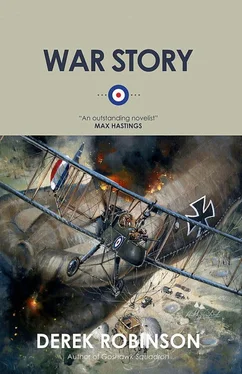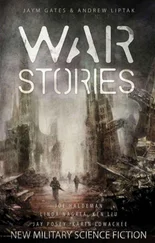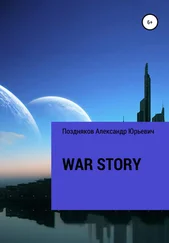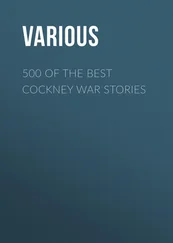Goss discarded his newspaper. “I do wish the Russian generals didn’t have such spiky names. I keep biting my tongue… What was Charlie apologising about?”
“Nothing,” Stubbs said. “Forget it.”
O’Neill told Goss: “Charlie made a mistake, and Stubby’s sister’s going to have a baby.”
“Charlie wouldn’t do a thing like that,” Ogilvy said. “Charlie and I were at Eton together, for heaven’s sake.”
“Collins!” Essex shouted. “Soda water!”
“Charlie has an alibi,” Goss said to Stubbs; but Stubbs was talking to Paxton. “You reckon it’ll be all over pretty soon, do you?” he said.
“Certainly. We’ve got them licked at sea, haven’t we? Take that scrap at Jutland! The German battle fleet had to run away home like a whipped cur!”
“Never apologise when you’ve got an alibi,” O’Neill told Essex. “It’s nothing to be ashamed of.”
“And we’ve got them licked in the air. That’s obvious.”
“I had an alibi once,” Mayo said,”but Dando gave me some ointment to rub on it.”
“And in a few days we’ll lick them on the land. The infantry will do their stuff and the cavalry will go through the Hun like a dose of salts. You watch.”
“Look here, Charlie,” Goss said,”you don’t want to live in Grand Rapids. Give Private Collins a shilling and he’ll marry the girl, won’t you, Collins?”
“No, sir.”
“Collins is trying to haggle,” Goss warned. “Don’t go above half-a-crown.”
Essex took a soda-water syphon from the tray tha t Collins was carrying. He walked over to Goss and sprayed him. Goss lay back. He shut his eyes and opened his mouth and gratefully accepted the jet of soda water. Essex walked around him, spraying hard. The dog Brutus raced around them, barking and trying to bite the water.
“You’re really enjoying this war, aren’t you?” Stubbs said.
“I’m glad we’re winning,” Paxton told him.
“I bet you’re glad you’re not in the trenches, too,” said Ogilvy.“Up to the armpits in mud and fighting the rats for your rations.”
“I don’t see any mud. Everyone tells me the Front is as dry as a bone around here.”
“Next time,” Goss said as Essex’s syphon ran dry,”be so good as to add a slice of lemon and the odd ice cube.”
“Anyway,” Paxton said, impatient at the way Stubbs kept looking at him,”there’s more to it than winning. I mean to say, look what we’re fighting for. Land of hope and glory, and all that sort of thing.”
Foster, who had seemed to be sleeping, cleared his throat. “That’s why we’re here, is it? I thought it was something to do with Belgium.”
“Yes, and whose fault was that?” Paxton demanded.
“One thing they taught us at Cambridge,” Essex said. “Belgium did not invade Germany. I remember making a note of that.”
“It started in Serbia, not Belgium,” O’Neill said. “Christ Almighty, you lot are pig-ignorant.”
“And whose fault was that?” Paxton insisted.
“The Austrians,” Mayo said. “I think.”
“Serbians fired first,” Goss said. Soda-water dripped from his ears.
“Austrians are no good,” Essex said. “Austrians yodel.”
“So would you if you had to wear leather knickers,” O’Neill said.
“Very clever,” Paxton told him. “Well, I know what I’m fighting for, even if you don’t.” He began searching his tunic pockets.
“There’s someone sitting in your cockpit, Pax,” Mayo said.
“Carpenter, probably,” Paxton said, still searching. “Plugging bullet-holes.”
“No. I’ve been watching. This chap seems to be hiding.”
Paxton found the paper he was looking for, turned and studied the FE, a hundred yards away. “I don’t see anyone.”
“Well, you wouldn’t, would you?” Mayo said. Paxton stared at him, trying to guess the joke. “Please yourself,” Mayo said.
“I don’t know about you,” Paxton said to Stubbs, giving him the paper,”but this is why I’m here. It’s something my cousin sent me, last year. He copped it a month later. This didn’t mean much to me then, but it does now. I’m going to stretch my legs.” He walked towards the FE.
Stubbs read the paper and passed it to Goss. “I guess I’ve got the wrong accent for this,” he said.
Goss read it aloud, clearly and evenly.
July, 1914-1915
A year ago, at Henley-
A year ago, at Lord’s-
The rival crews; the cricket Blues;
-They dreamt that life affords
No keener joy than contest,
No sweeter sound than cheers;
Far, far away they fling to-day-
Life’s mimic hopes and fears.
To-day they play the Great Game.
To-day they play the man:
In every sort and kind of sport,
-Whene’er they rowed and ran-
They learnt it, all unknowing,
The secret of the game,
That what you do for team or crew
Or country’s just the same.
And where the shells burst round them,
And bullets whistle past,
And every yard with wire is barred
The men are dropping fast,
Ripe grows the fruit of training
So little thought upon,
The steady eye, the heartening cry,
“Stick to it, boys! Come on!”
And yet, in trench and dug-out,
When darkness floods the sky,
These lads, at rest, in sudden jest
Recall with half a sigh
The joys wherein their senses
Were bound with silken cords
A year ago, at Henley,
A year ago, at Lord’s!
“It’s all about you, Frank, “Ogilvy said.” You’re the only one here who wears silk underwear.”
“What d’you make of it, Frank?” Goss asked. He handed him the paper.
“Sorry,” Foster said. “I’m afraid I wasn’t listening… Is this Paxton’s? Just another death warrant, I expect. Not important.” He screwed it up and threw it for Brutus to chase.
If the squadron carpenter was hiding in the front cockpit, he was sobbing and sniffling like a child.
Paxton paused to listen. The rim of the cockpit was higher than his head, so he couldn’t see in. Was it sobbing or was it whining? Maybe the dog Brutus had got stuck in there.
He put one foot in the observer’s stirrup and hauled himself up. A very young soldier lay curled in the bottom of the cockpit, shaking with sobs. He had wept so much that now he was too weary to make a lot of noise: His head rested on his upper arm; the rest of that arm fell across his face. His knees were almost up to his chest, and his chest jerked occasionally. He was wearing his best uniform. It looked to be a size too big for him.
He didn’t see Paxton until Paxton leaned over to get a view of his face. Then the arm fell away and Paxton knew him at once. Even through that wretched tear-sodden expression he knew him. It was Private Watkins, the young man who had mended his motorbike. “My goodness!” he said. “What the devil are you doing here, old chap?”
Watkins straightened up and blinked at Paxton. For a few moments his lungs were working so hard that he couldn’t get a word out. Paxton gave him a handkerchief. There was snot on Watkins’ upper lip, and Paxton couldn’t stand the sight of snot. Other people’s snot, that is; he was quite interested in his own. “Take your time, old boy,” he said. “Nothing to be afraid of. You’re perfectly safe here.”
Watkins cleaned up his face and gradually stopped gasping. “You promised you’d take me up in your aeroplane,” he said. His voice was croaky and thin.
“Did I really?” But Paxton remembered very well; there was no denying it. “You’re absolutely right. So I did.”
“I want to go now.”
Paxton almost laughed and then was glad he hadn’t. Watkins was looking up at him like a hungry orphan who’s just walked ten miles to ask for a crust. Nothing was funny to Watkins any more. “I’m afraid it’s rather difficult just now,” Paxton said. “What with the Push coming up and, you know, all that—”
Читать дальше












